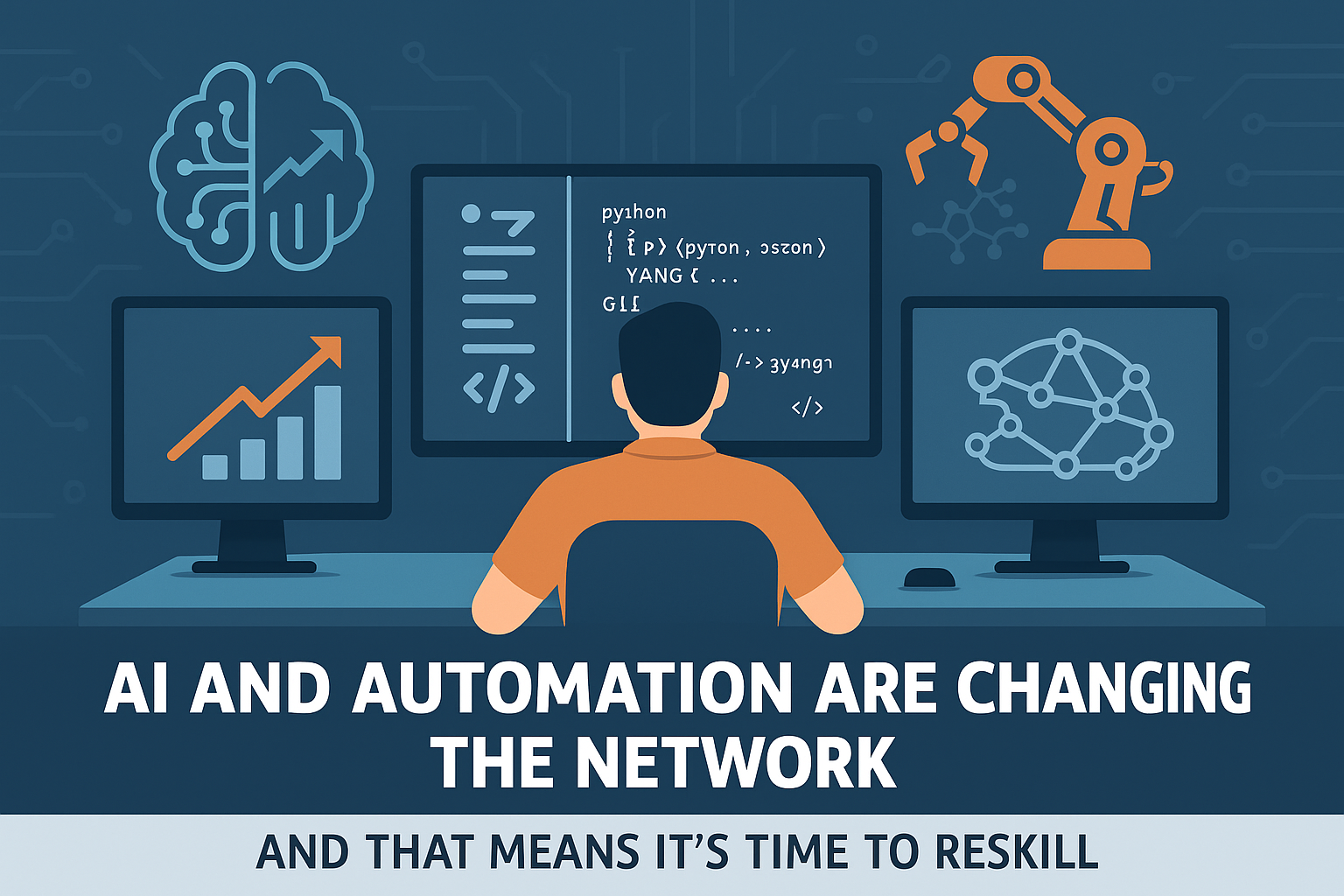AI and Automation Are Changing the Network — and That Means It’s Time to Reskill
The role of a network engineer isn’t what it used to be. Static routing tables, CLI-only config, box-by-box updates — that world still exists, but it’s rapidly shrinking.
With AI-driven observability, intent-based networking, and end-to-end automation becoming standard in enterprise environments, network professionals are being pushed to upskill — or risk falling behind.
And it’s not just about learning Python.
What’s Driving the Shift?
Three major forces are converging:
1. AI-powered tooling: Platforms like Cisco’s Nexus Dashboard, Juniper Apstra, and Aruba’s Central AI are using machine learning to detect anomalies, optimize policies, and even predict outages — sometimes faster than human NOC teams can react.
2. Infrastructure-as-code and DevNet-style operations: Whether it’s Ansible, Terraform, or vendor-specific SDKs, configuration is moving from the terminal to the CI/CD pipeline.
3. Business demand for agility: Teams are being asked to spin up secure, performant network slices — in minutes, not days — across hybrid and multi-cloud setups.
And all of that means the skills that defined the job a decade ago aren’t enough anymore.
The New Core Competencies
It’s not about replacing deep networking knowledge. It’s about expanding the toolkit. Today’s network pros need to be comfortable with:
– Scripting and APIs — Python, REST, JSON, YANG models
– Version control and automation pipelines — Git, CI/CD tools
– Data literacy — being able to interpret flow logs, telemetry, and AI-generated insight
– Cross-domain fluency — understanding how security, virtualization, and cloud interconnect
Many organizations are now retraining their own teams, pairing seasoned CCNPs with DevOps engineers or sending network staff through SRE-style bootcamps.
Because the goal isn’t just survival — it’s relevance in a changing stack.
Upskilling Isn’t Optional — But It Doesn’t Have to Be Disruptive
Vendors are getting involved too: Cisco’s DevNet certifications, Juniper’s automation tracks, Arista’s eNcore — all offer structured paths for network engineers to move beyond “box config.”
Internal training programs are also growing. Some enterprises are building cross-functional labs, where network, security, and platform teams train together on shared automation frameworks.
What matters is momentum. No one expects every engineer to become a software developer — but knowing how to read a Git diff or debug an Ansible playbook? That’s fast becoming table stakes.
Final Thought
AI and automation aren’t removing the need for network pros. But they are reshaping the role — away from device management and toward architecting policy, performance, and resilience at scale.
The good news? Network engineers already understand complexity. Now it’s just a matter of adapting the tools — and the mindset — to meet it head-on.

